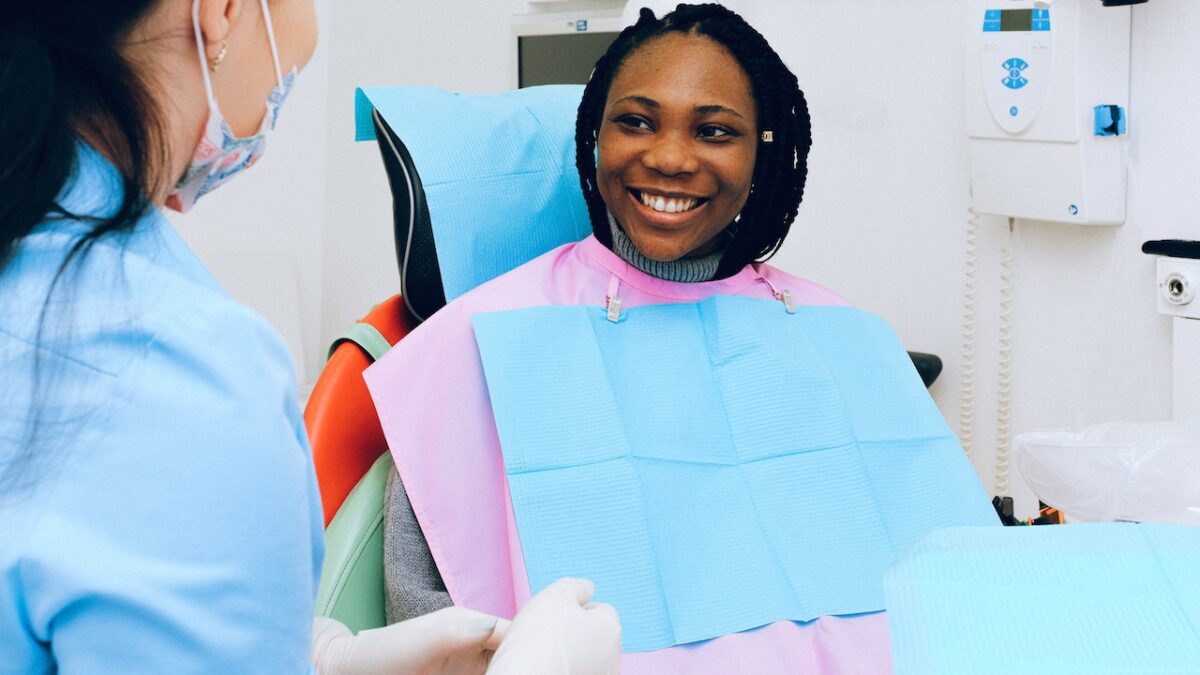Learn about early detection, prevention – and so much more!
A healthy smile is a reflection of your overall well-being. Good oral health contributes to confidence, nutrition, communication, and even systemic health. Yet, despite understanding the value of oral hygiene, many people delay or avoid regular dental visits. Life gets busy, dental anxiety sets in, or perhaps everything “feels fine.” Unfortunately, skipping those routine appointments can allow silent dental problems to progress unchecked.
Regular dental check-ups are not just about keeping your teeth clean. They are a vital component of preventive healthcare. In this post, we’ll explore the many reasons why consistent dental visits are so important, from early detection and prevention to the surprising ways oral health impacts your entire body.
1. Early Detection of Dental Issues
Dental problems rarely appear overnight. Most issues develop gradually and painlessly, until they reach an advanced stage. Cavities, gum disease, oral infections, and even oral cancer can begin with subtle symptoms that often go unnoticed without a professional examination.
During a routine check-up, your dentist uses specialized tools and X-rays to examine areas that can’t be seen with the naked eye. Small cavities, for example, may not cause discomfort until decay reaches the inner layers of the tooth. Gum disease can progress silently beneath the surface of the gums, leading to bone loss and tooth mobility. Oral cancer lesions, too, can appear as minor irritations or sores but may be life-threatening if left undiagnosed.
Early detection allows for simpler, less invasive, and less expensive treatments. A small filling is far easier and cheaper than a root canal or crown. Similarly, early-stage gum disease can be reversed with professional cleaning, while advanced periodontitis may require surgery.
By identifying problems before they become serious, routine check-ups protect both your health and your wallet.
2. Preventive Measures
An ounce of prevention is truly worth a pound of cure, especially when it comes to your teeth. Preventive dentistry focuses on stopping problems before they start. During a check-up, your dentist and hygienist carefully examine your mouth for signs of plaque buildup, enamel erosion, gum inflammation, and other risk factors.
Depending on your oral health status, your dentist may recommend preventive treatments such as:
- Professional teeth cleaning: Removes hardened plaque (tartar) that can’t be removed with brushing or flossing alone.
- Fluoride treatments: Strengthen enamel and help prevent decay, especially in children and individuals prone to cavities.
- Dental sealants: Thin protective coatings applied to the chewing surfaces of molars to block bacteria from causing decay.
- X-rays: Reveal hidden decay, bone loss, or structural issues that aren’t visible during a standard exam.
When combined with daily brushing, flossing, and healthy dietary choices, regular check-ups can dramatically reduce the likelihood of serious dental problems later on.
3. Professional Dental Cleaning
Even the most diligent brushers and flossers can’t reach every nook and cranny in the mouth. Over time, plaque hardens into tartar, which can only be removed by a dental professional.
During your cleaning, the hygienist uses special instruments to gently remove plaque and tartar buildup from the teeth and gumline. This process not only prevents gum disease and cavities but also improves the appearance of your smile. Surface stains from coffee, tea, wine, or tobacco can be polished away, revealing brighter, smoother teeth.
Additional benefits include:
- Healthier gums: Removing buildup reduces inflammation and bleeding.
- Fresher breath: Persistent bad breath often stems from bacteria and tartar buildup.
- Better overall health: Regular cleanings reduce bacterial load in the mouth, minimizing the risk of bacteria entering the bloodstream.
Many patients describe the sensation after a cleaning as “like a fresh start.” That smooth, clean feeling isn’t just satisfying: it’s a sign your teeth and gums are healthier and better protected.
4. Oral Hygiene Education
Every mouth is unique, and what works for one person may not work for another. One of the most valuable aspects of a dental check-up is the opportunity to receive personalized oral hygiene education. Your dentist or hygienist can assess your technique and provide tailored advice for improving it.
Common areas of discussion may include:
- Proper brushing and flossing techniques
- The best toothbrush or toothpaste for your specific needs
- Managing sensitivity, dry mouth, or gum recession
- The role of diet in oral health, such as reducing sugar intake or increasing water consumption
Education empowers you to take charge of your own oral health. Patients who understand why certain habits matter are more likely to maintain them. Over time, small improvements can make a significant difference in the health of your teeth and gums.
5. Overall Health Connection
Your mouth is the gateway to your body, and what happens there can affect your overall health. Increasing research shows strong connections between oral health and systemic conditions, meaning that maintaining your teeth and gums can actually help protect other parts of your body.
- Cardiovascular Disease: Gum disease, also known as periodontitis, is a chronic bacterial infection of the gums and bone supporting the teeth. The bacteria and inflammation associated with periodontitis can enter the bloodstream and contribute to the formation of arterial plaque. Studies suggest a link between gum disease and conditions like heart disease, stroke, and high blood pressure.
- Diabetes: Diabetes and oral health are closely intertwined. People with diabetes are more susceptible to infections, and untreated gum disease can make it harder to control blood sugar levels. Regular dental visits help manage both conditions by controlling inflammation and bacterial growth.
- Respiratory Health: Bacteria from the mouth can travel to the lungs, potentially leading to respiratory infections such as pneumonia. This is especially concerning for older adults or individuals with compromised immune systems.
- Pregnancy and Birth Outcomes: Pregnant women with untreated gum disease face higher risks of premature birth and low birth weight. Routine dental care during pregnancy is not only safe but highly recommended to protect both maternal and fetal health.
The evidence is clear: good oral health supports overall wellness. Regular dental check-ups are a proactive way to reduce your risk of systemic illnesses and improve your quality of life.
6. Building Trust and Reducing Dental Anxiety
For many people, visiting the dentist can trigger anxiety or fear. However, maintaining a consistent schedule with the same dental team can help build trust and familiarity, turning those visits into a comfortable routine.
Regular appointments mean you’ll spend less time in the dental chair overall. When problems are addressed early, procedures tend to be faster, less invasive, and less stressful. Your dental team can also provide reassurance, explain treatments clearly, and help you understand what to expect during each visit.
Over time, patients who maintain consistent check-ups often find their fear of the dentist diminishes significantly. A calm, caring environment combined with preventive care can transform your perception of dental visits from something to dread into something that feels empowering and health-focused.
Prioritize Your Health: Schedule Your Next Dental Check-Up
Regular dental check-ups are an essential part of a healthy lifestyle. By visiting your dentist every six months – or as recommended – you’re taking proactive steps toward maintaining your smile, comfort, and confidence for years to come.
At Village Family Dental, we’re proud to offer compassionate, comprehensive care for patients across Eastover, Fayetteville, Hope Mills, Laurinburg, Raeford, and St. Pauls. Our experienced dental professionals provide everything from preventive exams to advanced treatments, all within a welcoming environment designed to put you at ease.
Don’t wait for a problem to arise before making your next appointment. Your smile deserves consistent care and attention. Schedule your next dental check-up today and invest in a healthier, happier smile.




